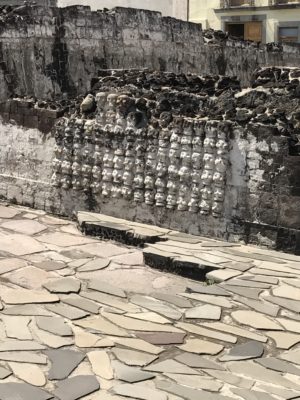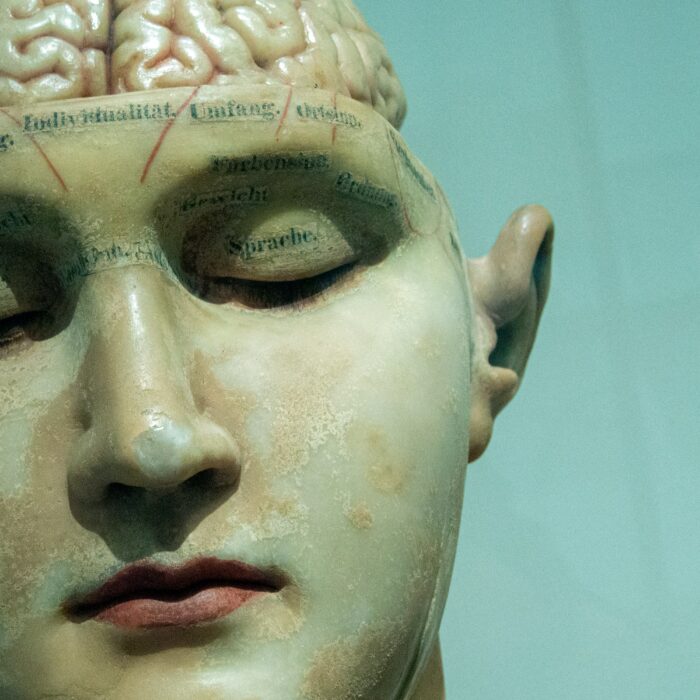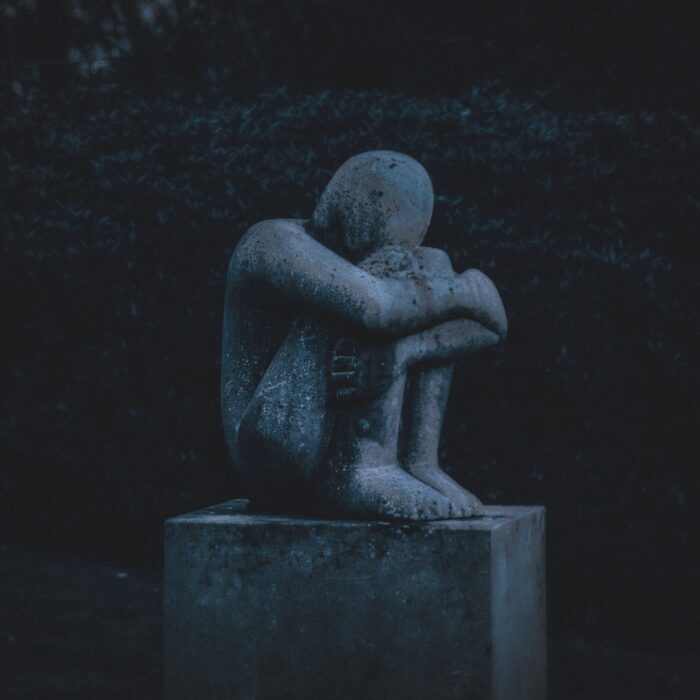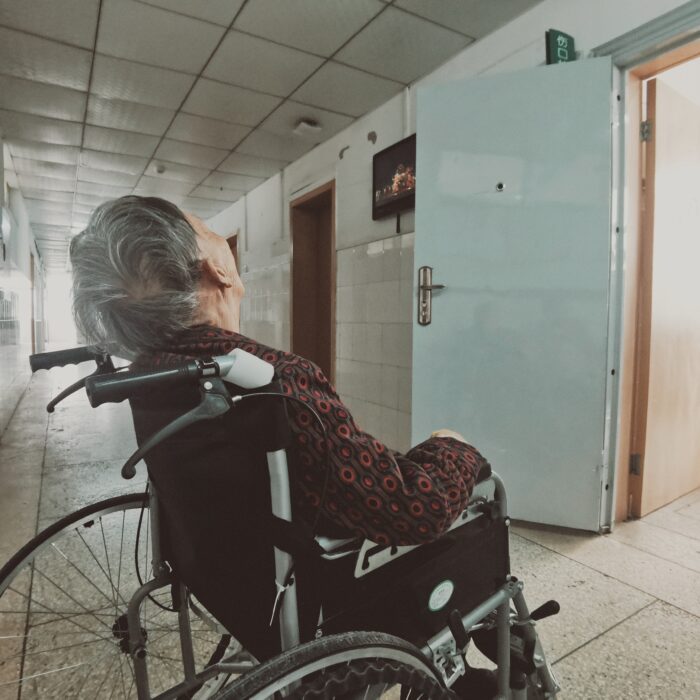You have no items in your cart. Want to get some nice things?
Go shopping The cafe owner handed over a slip of paper with all the names of the good spots, just like he promised me. I leaned across the table to study the slip. The salsas and fruit marmalades of sunflower seeds in oil took over half the table. He read out each place he had written down: Torre Latinoamericana, Fonart, Calle Colima. And then he turned over the slip and showed us a map he had drawn with little squares representing each location. I was touched by how much time it seemed he spent on this.
The cafe owner handed over a slip of paper with all the names of the good spots, just like he promised me. I leaned across the table to study the slip. The salsas and fruit marmalades of sunflower seeds in oil took over half the table. He read out each place he had written down: Torre Latinoamericana, Fonart, Calle Colima. And then he turned over the slip and showed us a map he had drawn with little squares representing each location. I was touched by how much time it seemed he spent on this.
“This is great,” I said. He smiled.
“Where did you learn to speak English?” said Mason.
“In school,” said the cafe owner.
“Really?” I said.
“Yes,” he said, “In school.”
“In school. Your English is very good. Muy bien.”
“Gracias,” he said, with a gracious nod. He had a shaved head and was thin, almost translucent, with tattoos crawling up his arms. He didn’t seem Mexican to me.
“Thank you so much for this,” I said, gesturing to the slip of paper.
“No worries.”
“Really appreciate it.”
“No worries, my friend.”
Mason asked if he could get the second half of his ham and cheese sandwich to go.
We headed back to our Airbnb. It was cool outside. A light breeze gave life to the domesticated trees with their bottom halves painted white. I buttoned up my jacket. “That was one of my favorite spots,” I said. I walked a little bit ahead of Mason.
“It was?”
“It was cute.”
“Cute?”
“Very cute. The owner was so nice.”
“He was very kind.”
“Kind, nice, all of the above. I’m still surprised it doesn’t have a Yelp page,” I said. I wondered if we should create one for the cafe and give them five stars and a good review. As a token of our appreciation. But I didn’t bring it up to Mason. I made a mental note of the cross streets, just in case I had to find the place again. Lafayette and Guttenburg. Funny how the streets were named after Europeans. A soldier and a publisher. The revolution was alive and well here in CDMX.
We waited for almost four minutes at the cross section. We waited for the cars to stop coming. You don’t have the right of way here, Mason had warned me when we first arrived. The cars will run right over you. We didn’t want to take any chances. So we waited. Our Airbnb was only a few blocks away, but it took us ten minutes. The doorman recognized us and opened the door.
“Hola,” I said. I was making an effort to practice my limited Spanish.
“Hola. Buenos dias,” said the doorman. His thick glasses and bushy moustache made him look like some educated gnome.
Mason fiddled with the key in our apartment door a good bit. Even though we had been there a few days now. I was ready to call an Uber.
“Do you mind if I take a shower?” said Mason.
“No, go for it.”
“Are you sure?”
“Yeah, of course. Go for it.”
He started to undress.
“We don’t have any appointments, right?”
He scowled. “What do you mean?”
“We have all day, right?”
“Yeah.”
“Then take your shower.”
We ordered an Uber and got lucky. It showed up within two minutes. I was ready to go. Mason and I got into the back seat. I always liked his hair fresh out of the shower. Shiny and dapper, like a gentleman. The driver gave us waters. They were the tiniest bottles we had ever seen, only 200 mL. But he was a nice guy. He asked if he could use Waze. I nodded my head. Of course.
“Si,” said Mason. Then he asked the driver in Spanish how long it would take. About forty minutes.
“Interesting,” Mason said to me. He pulled up our location on his phone. Our car was going the opposite direction from our destination.
“It’s only three kilometers away,” I said.
“Looks like we’re getting on the freeway, then turning around at this exit.”
“The traffic’s worse here than in Los Angeles.”
“Yeah?”
“Of course. Look at this mess.” I pointed out the window. “These cars are just sitting in the middle of the intersection.”
“Yeah, it’s pretty messed up.”
“And everyone’s honking.”
“I’d hate to live here.”
“Why is everyone honking?”
Our driver laid on his horn. A car in front of us merged into another street, just as a taxi came up behind and refused to yield. Honk, honk. The taxi nicked the bumper of the car in front of us. Honk, honk. The two drivers yelled at each other, then the car in front of us turned onto a side street and drove off.
“Driving is a contact sport here,” I said. Mason gave me a look and smirked.
“Bumpers knocking each other. Drivers jockeying for position in roads.”
“Roads lacking lane markers.” I slapped my thigh like a tambourine and stared out the open window at the sea of cars. “Horns blaring like angry grunts. Shouts of adrenaline.”
“It’s terrifying,” he said.
“And maddening. Pedestrians are not welcome.”
“No, definitely not. If anything, they’re impediments.”
Our Uber fought its way to the historical center of the city. We sat in silence for a good part of the trip. The radio was on an American oldies station. “California Girls” just stopped playing.
We were at the Avenue 20 de Noviembre and could see the giant Mexican flag waving in the Zocolo. I squashed my head down to see all of it. Traffic cops at every intersection tweeted whistles and swung their arms. They were action figures and we watched them with amusement.
The traffic was at a standstill. Waze told our driver it would take another ten minutes.
“We can walk the rest of the way,” Mason said to me.
“Okay.”
“Do you mind?”
“No, I said okay.”
“We should give him a tip.”
“Really?”
“Do you have change?”
“I have a pocketful of change.” I tapped out a syncopated rhythm on my thigh.
“Well, we might want to keep those coins,” said Mason.
“Why?”
“In case we need to use a bathroom or something. They could be good.”
“How about we give him the ten peso coin?”
“Okay,” said Mason. He told the driver in Spanish that he could let us out here. Then he gave him the ten peso coin, and told him his driving was very good.
I looked up at the sky. The clouds were retreating from the sun, and I took off my jacket. We joined the busy sidewalk filled with shops and fast food restaurants. It smelled like burnt meat and bleach. A man standing by the newspaper kiosk was reading a beauty magazine and smoking a pipe. I took my phone out to take a picture.
“Be careful with your phone,” Mason said.
“Why?”
“People just snatch it out of your hand.”
“Are you kidding?”
“I’m serious.”
“Who told you that?” I was about to answer my own question, but a pit formed in my stomach. I put my phone in my pocket.
Cars zoomed by us at the Plaza de la Constitución. We looked across where the Mexican flag stood in the middle of the square. It took over half the sky. Cowering underneath it, white tents invaded the Zocolo. I thought they were always there, but Mason later told me that there must be an event going on.
“Here, let me take a picture of you,” said Mason. He took out his phone, and my body tensed. I was standing in the shade, the large red white and green banner behind me. Mason looked at the picture he took.
“Am I too dark?” I said.
“It’s hard to see you.”
“Here, I’ll stand in the sun.”
“I don’t know if that’s it.”
“Yeah, come on. Take the picture.”
My heart was beating faster. Mason took another picture, then we crossed the street.
“I think it’s a book fair,” said Mason. The white tents were full of books. Some other tents we passed had vendors selling drinks and ice cream. A round man in his twenties handed us a program. It was for the art fair.
“How much?” said Mason. The man shook his head and told us it was free. The change stayed in my pocket. I tapped out a rhythm without even realizing it.
The sun was at directly above us. The flag barely made a shadow over the Zocolo. I felt the sweat forming on my nose and forehead. I hated the feeling.
“I’m burning up,” said Mason.
“Yeah, same.”
“I hate it.”
“Me too.”
I wondered about holding the program over my head to shield the sun, but I thought it’d make me look like a tourist.
“What do you think that is?” I said, pointing at the largest building surrounding the Zocolo.
“I don’t know.” He glanced at it for a second. “Maybe the main government building?”
“You think?”
We continued walking. I continued studying the building. “Interesting they have crosses on the tops.”
“Oh, you’re right. That’s a church.”
“Really?”
“Yeah. It’s a church.”
“Interesting that the church is bigger than the capitol building.”
“Yeah,” he said. But I’m sure his mind was more preoccupied with the heat.
We reached a dead end with a police in riot gear. All the police here had riot gear.
“This is Templo Mayor,” he said. “You wanted to see it, right?”
“This is the temple? Where?”
“Here.”
“Really?”
Mason led me through the gate the police was guarding and there was a ticket booth selling tickets for 65 pesos.
“Dos, por favor,” I said.
“Two tickets,” said the ticket booth attendant. He swiped my credit card and handed over two tickets.
“Gracias,” I said.
We couldn’t take in our tiny bottles of water from the Uber. We could have written our names on them with a sharpie and let the security guard hold on to them. But we just drank them. It took me two gulps. What a waste, I thought. This is capitalism. I almost told Mason, but he had already walked ahead.
The ruins were outdoor, open air. They were ancient and I felt like I was standing in a portal from another history. For the most part, it looked untouched. The only modern adjustment was a concrete pathway with informational placards that led the paying guests through a winding through the ruins like the old snake video game.
“I can’t stay too long in the sun,” said Mason.
“Okay.”
“I’m burning up.”
“Yeah, me too.”
We walked past a tour guide lecturing to a large group of gringos. Mason kept walking while I took glimpses at placards explaining in both Spanish and English different parts of the temple ruins. Mason wasn’t stopping. I felt my heart beating faster. I took out my camera, pretty sure that no paying guest would snatch it away from me here in these sacred ruins. I took a photo of each placard I walked past. I’ll read them later, I told myself. One day when I have nothing to do.
I caught up to Mason. He was waiting for me in a shaded section where the ancient Eagle Ballroom used to be. “I have to go inside. It’s too hot out here.”
“Okay,” I said. “I’ll look at this stuff, meet you inside.”
A large agave plant sat in the middle of a section of mowed grass. It was the only living thing among the ruins of ancient rock. I stared at an altar made out of rows of human skulls, stacked like blocks of limestone. I wondered how long these rocks sat in the spot, how many people had seen them as I had seen them. The sense of ancient history was refreshing for me.
The end of the pathway led to the museum and gift shop. It’s all about the Benjamins. Especially abroad. Inside the Museum of the Major Temple, I found Mason checking his phone on a bench.
“How are you feeling?” I said.
“Okay. Better.”
“That’s good.” I glanced around. “Where’s the bathroom?”
“Downstairs,” said Mason, pointing to the set of stairs in the corner.
“I’m going to go.”
“Okay, I’ll look inside this room.”
I went downstairs, where the lights were dim and it smelled like urinal cakes and bleach. A group of young Mexican children in forest green jerseys loitered around the bathroom. Three of them were in the bathroom as I relieved myself. I zipped up and washed my hands. One of the kids was pulling a paper towel out of the dispenser in slow motion. It seemed like it was a gag for the other children. I shook my hands over the sink a few times as I waited patiently.
I found Mason walking out of the main room. A giant stone statue lit from underneath made up the far side of the room. I wondered whether it was a god.
“I’m ready to go,” said Mason.
“Now?”
Mason nodded.
“Okay,” I said, “I’m going to take a quick look in this room.”
“I’ll meet you by the exit,” said Mason.
I made a cursory walk through the room, past displays of old artifacts, and what looked like a chicken skeleton. I was making my way to the stone statue. I scanned over the placards.
“They’re all in Spanish,” said Mason. He had walked back into the room. I could tell by his face that he was ready to leave.
Back outside, the sun was even hotter. The streets were fuller. A group of men sat on the cobblestone as something burned in a kiln nearby. It smelled like tar. A shop of souvenirs displayed skeleton figures and jack-o-lanterns in preparation for Día de Muertos and Halloween. Cops in riot gear stood watch by barricades in front of a government building. An old man cranked a music box supported on a pole. The tinny song sputtered out over the crowd like the wail of a ghost child.
Mason didn’t look well. I was afraid he was about to pass out. We walked by the same church we had mistaken for a government building.
“Do you want to take a look?” he said.
“Of course.” I thought it’d be good for Mason to sit and cool down for a bit.
We stepped through iron gates and entered the sanctuary. It was old and large. We ventured into the middle of a mass in progress. People sat in the pews, listening to a priest. I wondered how much more these people loved God than we did.
“Do you want to sit?” I said.
“No.”
“Why? Come on.”
“I don’t want to intrude.”
We left. I prepared myself to once again face battle with the city. We came upon a street where people waited and ran across traffic. We found our opening and made a dash for it.
“Look.” Mason pointed up. It was the tower that the cafe shop owner had recommended to us.
“Oh yeah.”
“It doesn’t look like the tallest tower in the city.”
“I guess not.”
As we walked past the Palacio de Bellas Artes, I took out my phone to take a photo.
“Be careful with your phone,” Mason said. I felt my face get hot. I didn’t take the photo.
We made our way down the Avenida Paseo de la Reforma and found the Fonart market, which we were told was a government-run outfit that supported artisans through fair trade practices. The store was one giant room filled with different displays. It was mostly empty and had a sense of loneliness. Not even ghosts would stick around. We wandered. The knick nacks, shawls, wood alebrijes, clay pots and ceramic skulls sat quietly like aggressive museum displays. Mason was disappointed, he was expecting something else.
I wanted the day to be over. But Mason asked if I wanted to check out Calle Colima. It was a supposedly leisurely street.
“Sure, why not.” My spirits lifted again. The coins in my pocket jangled each time I stepped with my right foot. Boom chuck, boom chuck. It was my song for the city.
My stomach was growling. I couldn’t wait to find some quaint cafe. A place where we could really recommend our friends to go to. You must check out this spot. The pastries are to die for. We walked past the RENAPO. I saw a group of cops in riot gear hanging out together.
“Why are there so many cops?” I said. Mason didn’t respond. We passed barricades partially put up in the street. They were anchored with iron chains.
“What’s all this?” I said. At the street corner, more cops in riot gear surrounded a charter bus.
“I don’t like this. Not one bit,” said Mason. “Let’s get out of here.”
“Yeah. Let’s go.”
We turned around and walked away.
“Let’s just go back,” he said.
“Yeah.”
We walked in silence for about half an hour.
“Do you want something to eat?” he said.
“My stomach’s hurting,” I said. We continued walking in silence another fifteen minutes. We walked all the way back to our Airbnb. The doorman saw us and put down his novel. He opened the front door for us and nodded. I nodded back, but didn’t say anything.
We sat down in the kitchen.
“How are you feeling?” he said. I didn’t respond. My head was swimming and I felt unable to pick out a thought.
“What’s wrong?” he said. His face fell and I was scared.
“Nothing,” I said.
“You’re crying.”
I didn’t realize that I was. I wiped at my tears. A little snot dribbled out of my nose and I wiped it on my sleeve. I stared out the glass walls, through the barbed wires lining the top of the courtyard perimeter, at a blue October sky. We were in the nicest neighborhood and all around us cars honked like birds.
“I’m sorry I ruined it,” he said.
I dumped the contents of my pocket onto the dining table. The coins rattled on the wood. I had forgotten about the slip of paper the cafe owner had given us. It was folded up and worn thin in my pocket.
“I’m not sure if I like this city.”
He nodded, then took a shower.





